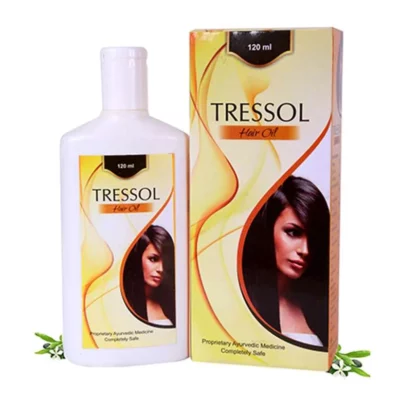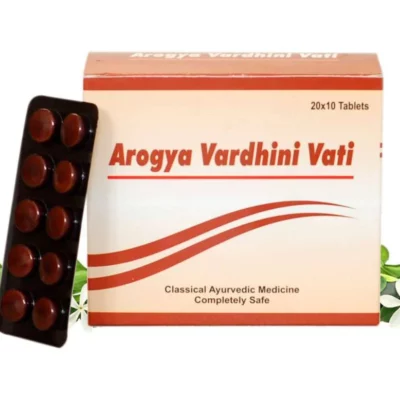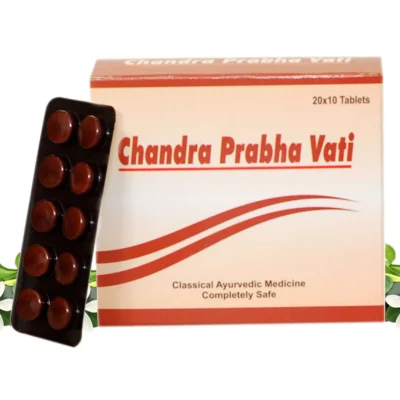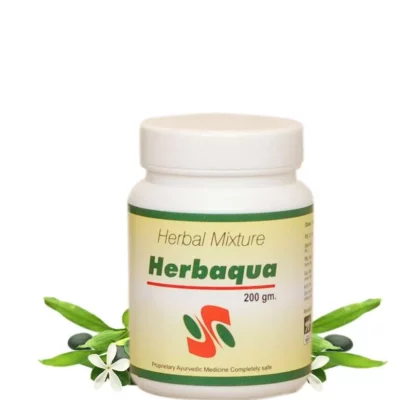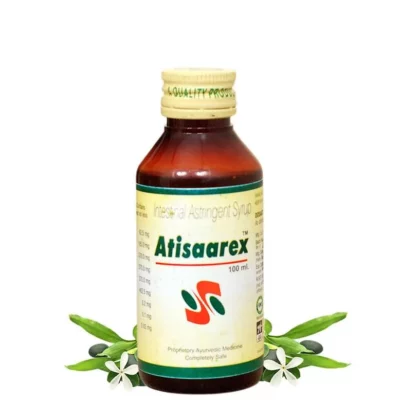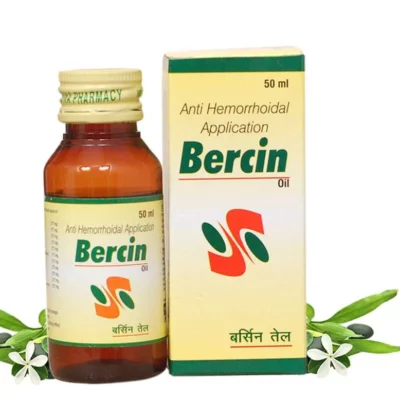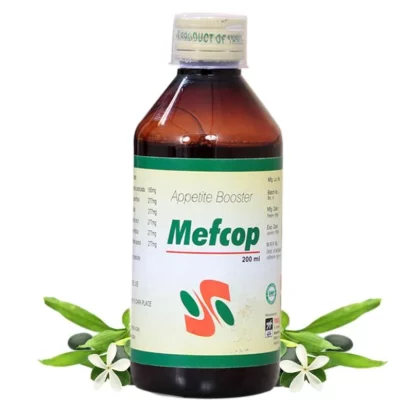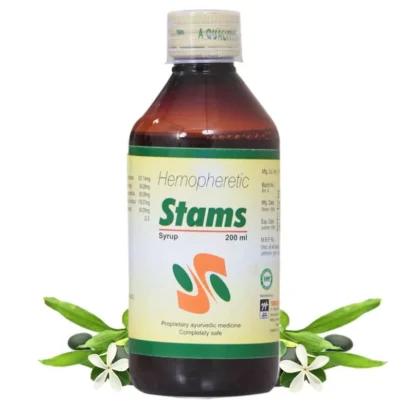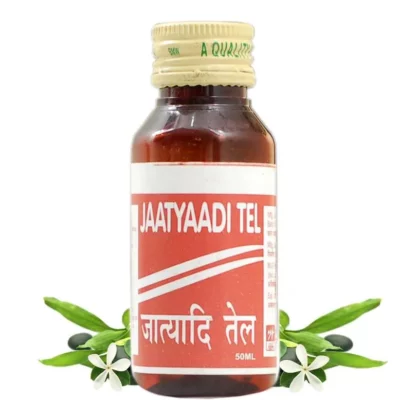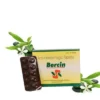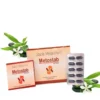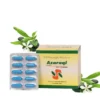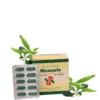Bronchial Asthma is a chronic inflammatory disorder of the airway and it is the most common distressing disease affecting 3-5% of the total population.
It is a respiratory tract disorder in which there is an obstruction in easy flow of air in the lungs. The bronchial tubes get obstructed and inflamed and inner surface gets sometimes swollen.
In Asthma, a person can experience dyspnoea (breathlessness) and wheezing characterized by acute conditions which causes great affliction to the vital breath. Due to the force of the paroxysm, the patient faints, starts coughing and becomes motionless. The patient is unable to speak as the throat is afflicted with sputum. He/she finds comfort and ease in sitting posture. These paroxysms are intensified by cloudy, humid, allergic and cold environments.
According to modern medicine, asthmatic attack is caused due to:
- Exercise/Exertion
- Allergens
- Inhaling fumes, dust particles
- Sudden changes in climate
- Trauma to chest/throat
Asthma according to Ayurveda:
Ayurveda refers to bronchial asthma as Tamaka Swasa. It is well explained in Charak Samhita. It is caused due to the simultaneous aggravation of Kapha and Vata doshas.
What is the treatment of Asthma?
The modern treatment of asthma includes blocking one mediator alone. Therefore, it would be unlikely to have any significant effect on the disease process. Therefore, the goal of asthma treatment has shifted from symptom relief to disease control as well as ensuring patient’s well-being.
Among all the treatment modalities, herbs and herbal combinations are said to be well-accepted, safe as well as effective in asthma. This is because of the therapeutic efficacy and their effect in multiple blocking and homeostasis of very complex and interdependent cellular and mediator networks supporting and involved in the inflammatory process of asthma.
What is the treatment of Asthma according to Ayurveda?
Ayurveda, the great indigenous system of medicine of India is a complete healthcare system and deals with the preventive and curative aspect of many disorders.
The primary aim of Ayurvedic treatment is to remove Svasavarodha (obstruction of the respiratory passage) by eliminating Kapha. This process is known as Srotoshuddhi in Ayurveda. It involves removing the bronchial blockage caused and to remove the bronchoconstriction caused due to Vata dosha and Kapha dosha is balanced by massaging with medicated oils and rock salt all over the chest.I
Ayurveda prescribes polyherbal combinations which are safe and effective in asthma. Ayurvedic treatment includes prescription of herbs and herbal remedies that have ushna virya (hot potency), Vata–Kapha hara properties (pacify Vata and Kapha doshas), tikta katu rasa, laghu and tikshna guna (light and penetrating properties). These herbs also help in building immunity and lowering the intensity and frequency of asthma attacks.
Some herbs useful in the treatment of Asthma are:
- Pushkarmool (Inula racemosa): Pushkarmool is an Ayurvedic herb that offers path breaking results in bronchial asthma.
- It produces relaxation of bronchioles like adrenalin.
- It is one of the most useful herbs for treating cardiac asthma as well.
- This herb helps in clearing the airways and helps in alleviating dyspnoea associated with asthma.
- Bharangi (Clerodenum serratum): Bharangi act as a powerful anti-histaminic herb and useful in chronic as well as acute asthmatic attacks due to its Vata and Kapha doshas balancing property and hot potency.
- Bharangi possesses anti-inflammatory and antihistaminic properties.
- It acts as mucolytic and breaks down mucus and eases it out of lungs.
- Malaya Vacha (Alpinia galanga): It has bronchodilatory and anti-inflammatory effect on bronchioles.
- Shati (Hedychium spicatum): Shati is an herb mentioned in Ayurveda for the treatment of diseases related to the respiratory tract.
- This herb is suitable for the treatment of asthma as it is katu (pungent), tikta (bitter) in taste and hot in potency.
- It acts as Kapha-Vata shamaka (alleviates Kapha and Vata doshas).
- Pippali (Piper longum): Pippali is a common spice used in household of every Indian kitchen. It is a well-established fact that pippali is one of the most important spices in the treatment of Tamaka-Shwasa.
- It contains certain compounds that have anti-histaminic property.
- It helps in controlling the symptoms of asthma such as breathlessness.
Some Home Remedies for Asthma are:
- Ginger (Zingiber officinale): Ginger is the most commonly used anti-inflammatory herb that can provide relief in asthma as well. Make fresh ginger extract and mix it with 2-3 garlic cloves. It is a very effective remedy for Kapha release thereby giving relief in asthmatic attacks.
- Mulethi (Glycyrrizha glabra): Due to the anti-inflammatory effects of mulethi, it provides great relief to the asthma patients. Combine mulethi with ginger extract and consume it on a regular basis once or twice a day.
- Cinnamon (Cinnamomum zeylanica): Cinnamon with honey is a simple remedy for getting effective relief in asthma. Add 1 teaspoon of cinnamon and 1/4th teaspoon trikatu powder into a cup of boiling water. Boil this mixture for some time. When it becomes lukewarm, add a teaspoon of honey before drinking it.
- Ginger and Turmeric Milk: Taking ginger and turmeric milk is an all-natural remedy to lower asthmatic attacks especially during seasonal changes and winters. Add a teaspoon of turmeric and fresh ginger extract to a boiling milk and consume it twice a day.
- Make the paste of black resin, long pepper, licorice and dates. Take 1 teaspoon of this paste with honey.
- Take warm milk boiled with garlic at night before going to bed.
- During attack, rub nilgiri oil or pain balm on the chest and get fomentation. Inhale mint or camphor.
Diet and Lifestyle:
- Avoid the intake of sour food in the diet.
- Avoid deep fried, processed food having preservatives.
- Heavy foods like bananas should be avoided.
- Take light dinner.
- Curd, buttermilk, rice and dairy products should be avoided.
- Maintain a gap of an hour in-between dinner and sleep.
It can be concluded that asthma cannot be cured instantly but its symptoms and breathing trouble can be reduced significantly as the Kapha and Vata doshas can be reduced with the prescribed Ayurvedic treatment and by making some changes in diet and lifestyle.


